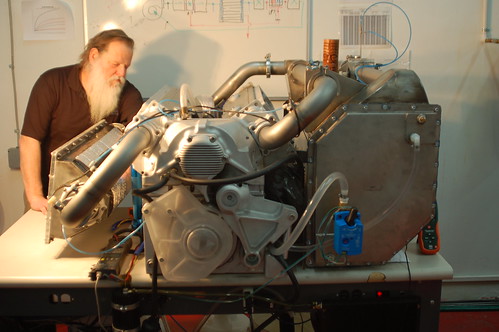
This post is part of the Science Tuesday feature series on the USDA blog. Check back each week as we showcase stories and news from the USDA’s rich science and research portfolio.
Clean drinking water for the world is a pretty tall order, considering that the United Nations says nearly a billion people currently go without it. But, that’s exactly the vision that Karen Sorber had when she co-founded Micronic Technologies in 2008 as a family business.
Now a Small Business Innovation and Research (SBIR) grant from the National Institute of Food and Agriculture (NIFA) is bringing the company one step closer to making that dream a reality. Micronic Technologies has introduced “MicroDesal,” a technology that takes well water with unsafe nitrate levels and treats it to the point where the water meets U.S. Environmental Protection Agency clean drinking water safety standards. Nitrates are unsafe for humans – especially children and pregnant women – and livestock.
MicroDesal produces a tornado-like effect that creates mini water droplets. The system quickly evaporates the water to separate impurities. MicroDesal then recaptures the liquid for safe use. Initial testing shows successful removal of heavy metals, nitrates, phosphorus, and bacteria.
Micronic Technologies’ SBIR grant of $99,000 funded research in rural Delaware. The company is now moving to an economically-depressed area of southwest Virginia – an area that is included in USDA's StrikeForce for Rural Growth and Opportunity Initiative. The move steps up production of MicroDesal, brings more jobs to the area, and includes a partnership with the University of Virginia at Wise campus. The woman-owned business employs military veterans and has student interns to provide them real-world experience.
World Water Day activities on March 22 have provided a recent reminder of just how important fresh water is. According to Krysta Harden, deputy secretary for the U.S. Department of Agriculture (USDA), about 70 percent of the world’s fresh water supply is devoted to agriculture. With California’s record-setting drought as a backdrop, USDA is leading the effort to promote water conservation in rural America by establishing seven regional climate hubs and providing grants to encourage water conservation through science and technology.
“NIFA’s SBIR grant has been a critical part of our success and forward momentum,” Sorber said. “Our goal, in partnership with The University of Virginia’s College at Wise, is to bring more jobs, boost the local economy, and play a role in cleaning up water from rural coal mines.”
(Editor’s note: Nielsen and Madsen are doctoral students at Washington State University in a National Science Foundation Integrative Graduate Education and Research Traineeship called NSPIRE – Nitrogen Systems: Policy-oriented Integrated Research and Education.)

